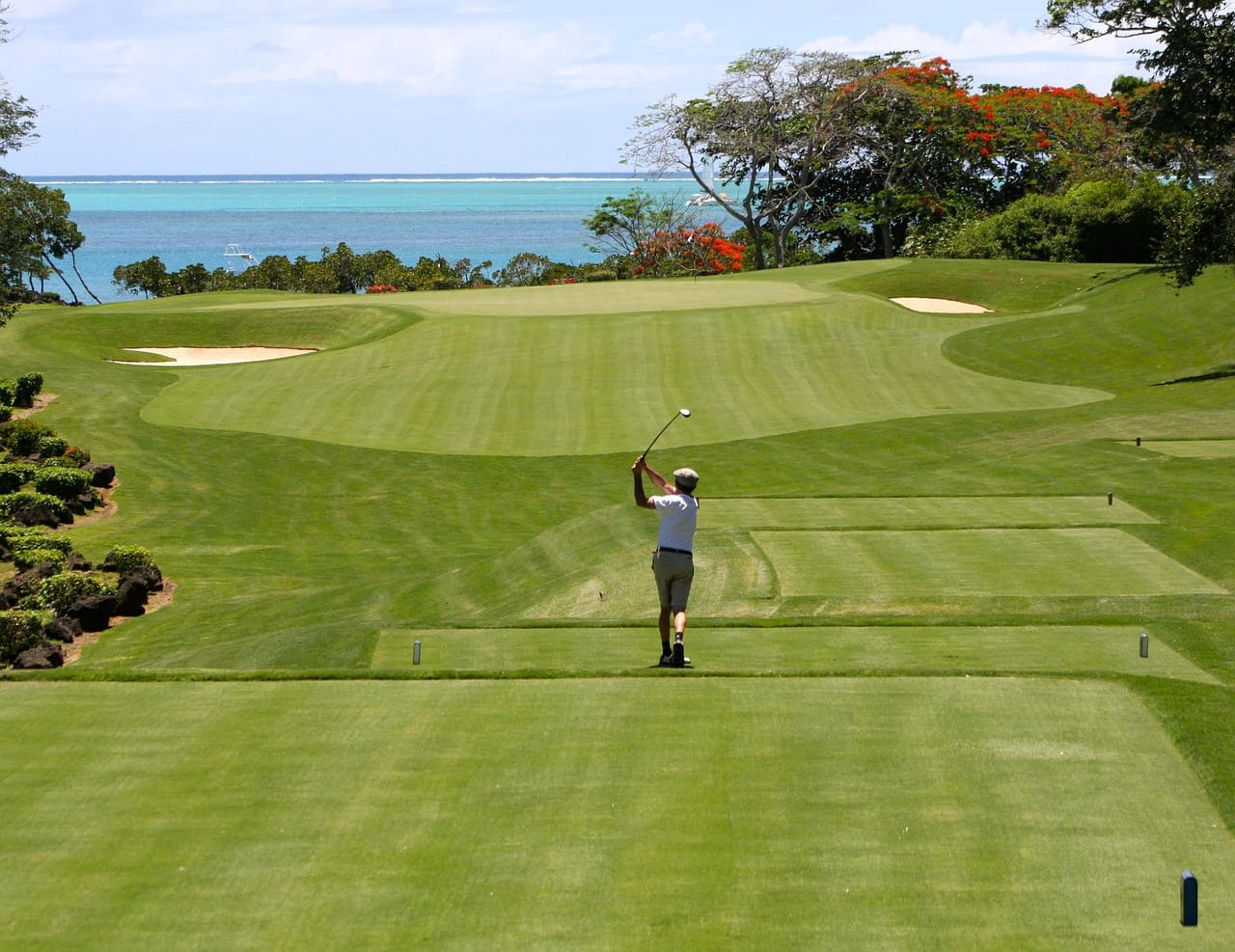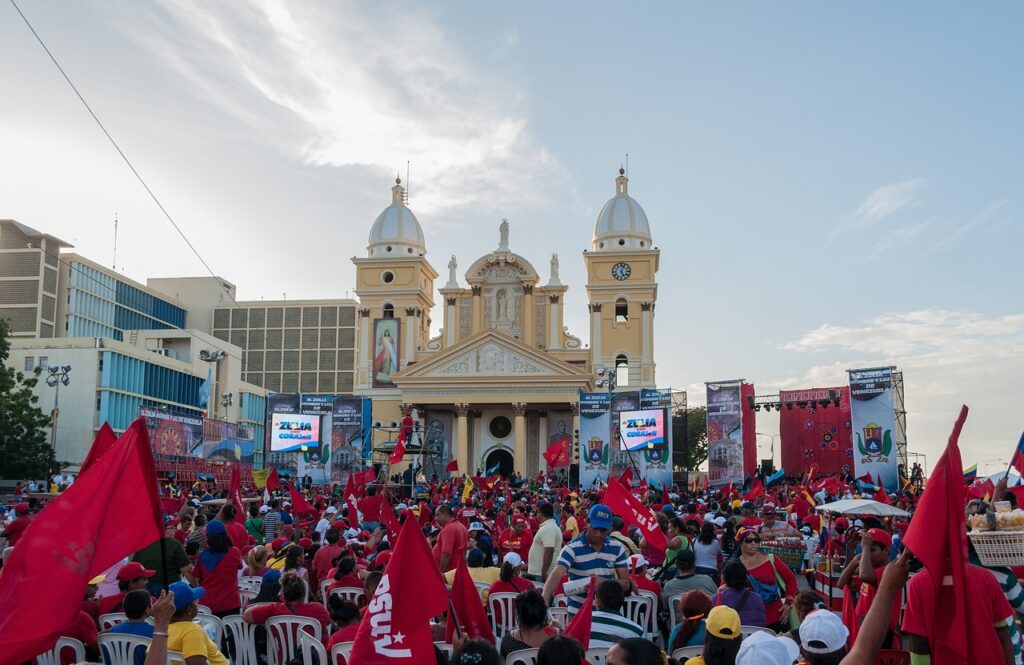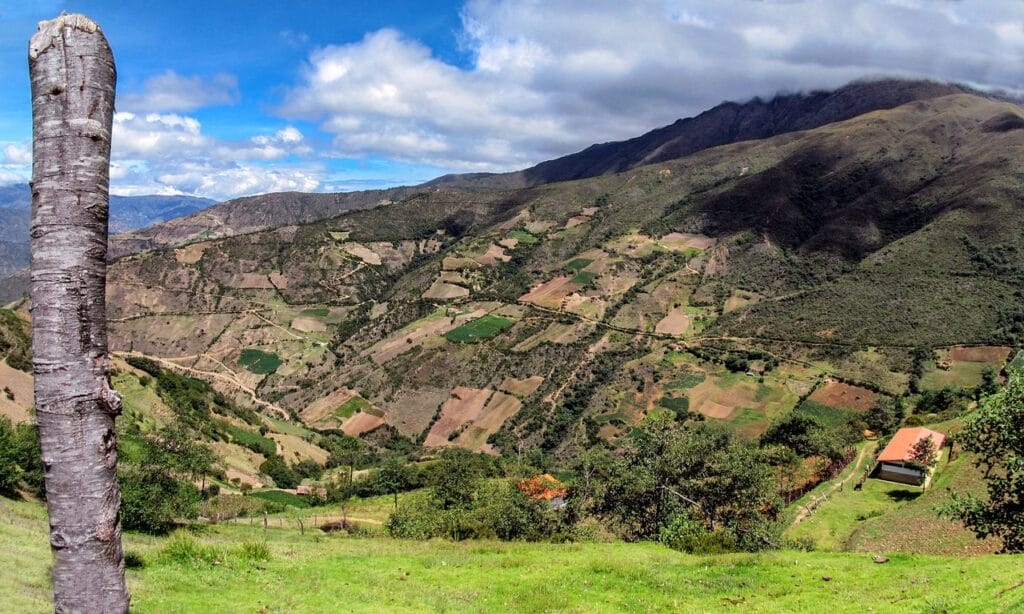Venezuelan President Hugo Chavez appears to be taking steps to nationalize and close golf courses. Chavez has already nationalized oil, steel, and cement companies. Several weeks ago, the BBC reported that Chavez was taking steps to seize two privately owned golf courses in the center of Caracas to provide housing for the poor. Chavez recently called golf a “bourgeois sport.”
A person interviewed in the NPR segment noted sagely: “How can you nationalize a sport? I mean, that would be the extreme of totalitarian government, wouldn’t it?” I’m sure this will work out well. After all, “land reform” has worked well in other settings.
[ez-toc]
The Nationalization of Golf Courses: Hugo Chavez’s War on a “Bourgeois Sport”
In a country marked by socio-political turbulence, Venezuelan President Hugo Chavez made headlines once again with his controversial stance on golf courses. Chavez, who had already nationalized key industries such as oil, steel, and cement, took steps toward seizing privately owned golf courses in Caracas, Venezuela’s capital, to repurpose the land for housing projects aimed at helping the poor. To Chavez, golf was more than just a game—it was a symbol of the wealthy, disconnected from the struggles of ordinary Venezuelans. By labeling golf as a “bourgeois sport,” Chavez reinforced his socialist rhetoric, seeking to dismantle what he saw as capitalist institutions.
This decision, however, sparked widespread debate, both within Venezuela and abroad, on the extent of government control over private property and whether golf courses truly represent an unjust concentration of wealth.
The Context: Nationalization Under Chavez
Hugo Chavez’s presidency, which began in 1999, was marked by a series of nationalization efforts that aligned with his socialist vision for Venezuela. The nationalization of the oil industry in particular served as a major step in his plan to shift wealth from the hands of private corporations to the Venezuelan state. Chavez’s government also took control of other key industries such as steel and cement, arguing that these sectors were too important to be left in the hands of private, often foreign-owned, businesses.
For many of his supporters, these nationalizations were seen as necessary reforms that would allow Venezuela to redirect profits toward social programs benefiting the poor. But critics warned that such moves stifled private enterprise, weakened investor confidence, and contributed to long-term economic instability. The debate over the nationalization of golf courses brought these issues into sharper focus, raising questions about how far the government should go in controlling private land for public benefit.
Chavez’s War on Golf: Symbolism and Politics
In Chavez’s Venezuela, golf came to represent much more than just a sport. It was seen as an activity enjoyed by the wealthy elite, those who lived in gated communities and had access to luxuries like exclusive golf clubs. Chavez, a man of humble beginnings, was always at odds with the nation’s elites, whom he viewed as part of the country’s historical inequality. By targeting golf, he made a statement against this elite class.
The two golf courses in question were located in affluent areas of Caracas, standing in stark contrast to the sprawling barrios where many of the country’s poor lived. In Chavez’s view, transforming these courses into housing for the underprivileged was not only a practical solution to the housing crisis but also a symbolic victory for socialism over capitalism.
Chavez’s criticism of golf mirrored his larger critique of the upper class in Venezuela. He often used rhetoric that drew a clear divide between the wealthy and the working class, arguing that the country’s resources should be used for the benefit of the many, not the few. In his speeches, he framed his government’s land reforms as part of a broader effort to create a more equitable society.
Land Reform in Venezuela: A Checkered History
Land reform has long been a contentious issue in Venezuela and across Latin America. Chavez’s golf course initiative was not the first time landowners found themselves at odds with the state. In the early 2000s, Chavez’s government launched a sweeping land redistribution program aimed at breaking up large estates and giving land to the poor. Supporters hailed these efforts as a way to address historical inequalities in land ownership, but critics pointed out that many of the redistributed lands ended up being poorly managed, resulting in decreased agricultural productivity.
Chavez’s move to nationalize golf courses, while framed as a way to address the housing shortage, drew parallels to these earlier land reform efforts. Supporters argued that the land could be put to better use, providing homes for thousands of Venezuelans who were living in poverty. However, opponents warned that simply redistributing land without proper planning could lead to unintended consequences, such as the deterioration of the land’s value and utility.
The question of how effective these reforms were remains open for debate. While some praised Chavez for his commitment to social justice, others argued that his policies exacerbated economic problems by discouraging private investment and creating uncertainty around property rights.
The Global Reaction: Can Sports Be Nationalized?
Chavez’s move to seize golf courses sparked widespread debate, not just within Venezuela but also internationally. One interviewee on NPR summed up the concerns of many when they asked, “How can you nationalize a sport? I mean, that would be the extreme of totalitarian government, wouldn’t it?”
The idea of nationalizing a sport was particularly provocative because sports, in many ways, serve as a cultural touchstone that cuts across class divides. Even though golf has historically been associated with wealth and privilege, critics of Chavez’s plan pointed out that the sport itself wasn’t inherently elitist. Many argued that it was the way golf courses were managed—often as exclusive clubs with high membership fees—that made them inaccessible to the general public, not the sport itself.
In countries around the world, golf courses have been used as public spaces, open to anyone with an interest in the game. The notion that the sport could be “nationalized” or seized by the state struck many as an overreach of government power, and it raised broader concerns about the implications for private property rights in Venezuela.
What Happens Next?
Chavez’s move to target golf courses for nationalization reflected his broader efforts to reshape Venezuelan society by his socialist principles. While the immediate impact was felt in Caracas, the broader implications extended far beyond the golf course. The debate over nationalization raised important questions about the balance between public and private interests, the role of sports in society, and the limits of government intervention in private property.
As Venezuela continues to grapple with economic challenges, the question of whether Chavez’s policies helped or hurt the country remains fiercely debated. His decision to target golf, however, remains a particularly striking example of how sports can become a battleground for larger political and economic struggles.
In the end, whether you see Chavez’s nationalization efforts as a necessary corrective to centuries of inequality or as a misguided attempt to control private enterprise, there’s no denying that his legacy continues to shape the political landscape of Venezuela. The case of the golf courses, in particular, serves as a reminder that even seemingly apolitical activities like sports can become deeply politicized in times of social upheaval.



